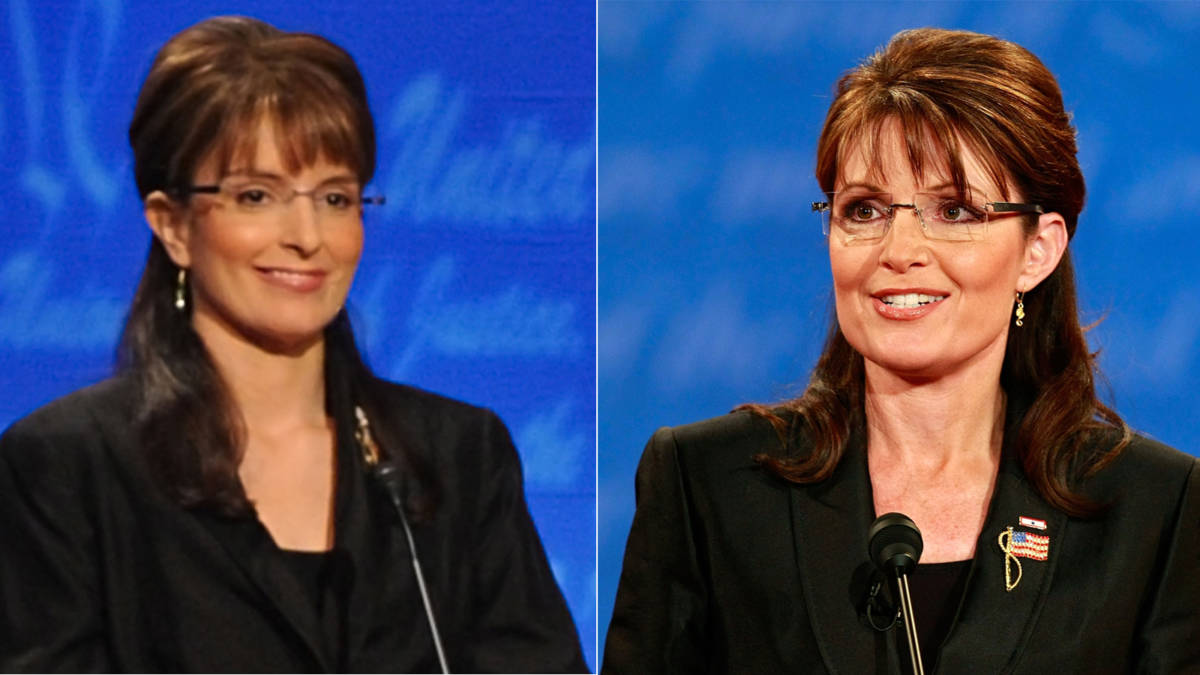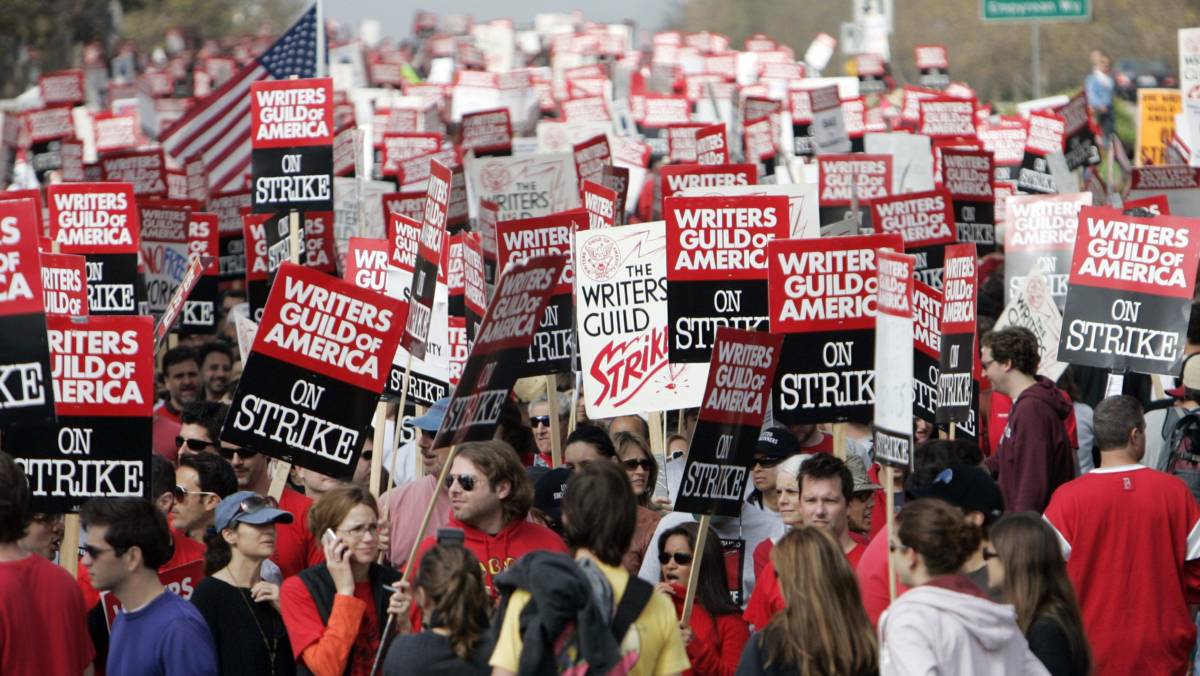It might have been The Sopranos that kicked off the golden age of hour-long epic crime dramas, but that was just the genre finding its feet. 2008 saw HBO’s sublime The Wire
draw to a close, with the final series introducing a newsroom setting drawn from David Simon’s own experience as a crime reporter.
The Wire began as the familiar format of following cops and the criminals they were chasing – it just had the advantage of doing it better than any of its competitors, providing a nuanced view of both the drug trade and the police, and giving a gritty, uncompromising look over the streets of Baltimore. Unlike many shows of its kind, it never held the viewers’ hand, demanding you paid close attention if you wanted to follow the myriad ongoing plots – something probably illustrated best by the scene in which two detectives investigate a murder exclusively using the word ‘fuck’.

As The Wire was recommissioned for more seasons, it expanded in scope, drawing in the shipping industry, local politicians, the education system – and, as mentioned, finally the mass media. Even though the fifth wasn’t quite as flawless as previous seasons, it managed to draw innumerable disparate plotlines into a satisfying ending – an ending which managed to only be bittersweet, even though this final season hit the twin tragedies of Michael K. Williams’ postmodern Robin Hood figure Omar Little being shot in the back by a child, and Aidan Gillen’s would-be reformer Tommy Carcetti fully embracing the dark side of politics. To some extent it’s a time capsule of the early 2000’s, but it addresses issues that are still relevant today – and, assuming nobody finds a magic lamp, likely always will be.
2008 also gave us the last series of FX’s The Shield – also a cop show, but taking the genre to arguably even grittier places than The Wire, it followed Michael Chiklis’ Vic Mackey in a journey through the world of police corruption. Drawing heavily from the real-life Rampart Scandal, in which officers of the LAPD were convicted of pretty much everything up to and including bank robbery, The Shield began with Vic murdering a member of internal affairs and got heavier from there.
Fans of these sorts of epic crime drama didn’t have to be too disappointed, though. 2008 also saw the start of AMC’s Breaking Bad, which began as a mere curiosity – ‘the dad from Malcolm in the Middle is a meth cook! Say whaaat?’ – and became so successful and critically acclaimed that Bob Odenkirk’s sleazy lawyer character got his own spin-off, Better Call Saul. In contrast to The Wire’s sprawling scope, Breaking Bad was a family drama and intimate character study, with the cornerstone being, at all times, Bryan Cranston’s Walter White descending into evil – or, as show creator Vince Gilligan put it, starting off as Mr. Chips and ending up Scarface.

Further antiheros could be found in FX’s Sons of Anarchy, a Hamlet-esque crime drama following a biker gang who were basically the Hells Angels with the serial numbers filed off – which, ironically, is something the Angels would likely do. The Sons were your classic example of neighbourhood friendly gangsters, somehow making arms dealing a fun thing and maintaining the status quo in their quiet little town against threats from outside, like other gangs, or federal agencies who inexplicably had a bone to pick with the Sons.
We also saw AMC’s sixtiesploitation series Mad Men continue on fine form into its second season. It still had Jon Hamm’s Don Draper smoking, drinking, and philandering his way through the working day, but also gave increased prominence to Elisabeth Moss’s Peggy Olson, who goes from being Draper’s secretary to a copywriter – and this was back in the days when women were only allowed to ride bicycles side-saddle. And no matter how charmingly roguish Don was with his many affairs, for some reason Betty Draper didn’t quite see it that way.
Lost, J. J. Abrams’s island-based mystery-drama which was already in serious danger of disappearing up at least one of its own orifices, went to strange new places in its fourth season. After the previous season finale revealed that some of the gang would eventually escape the island, season 4 featured extensive flash-forwards of what they did after that, while still following what was happening on the island – which involved conferring with people’s dead parents, and a secret underground time travel lab, and some kind of frozen wheel that moved the island to different places. Eventually, it turned out they all had to come back to the island – because nobody escapes the island.
Between a prominent spot writing and performing on Saturday Night Live and the success of NBC-satirising comedy 30 Rock, Tina Fey was one of the biggest names of 2008. You’ll likely remember Fey mainly for her mocking impersonations of then-Vice-Presidential candidate Sarah Palin, so convincing that many at the time couldn’t tell the difference. Indeed, you’ll still get people under the impression that it was Palin, not Fey-as-Palin, who had confidently declared ‘I can see Russia from my house’ to tout her foreign policy experience.

TV news in 2008 wasn’t just limited to shows. That year saw the advent of on-demand video service Hulu, with the BBC’s Iplayer having been launched not long before, on Christmas day of 2007. In the same way as large rocks tied to sticks are footnotes in the history of hammers, these are the primordial, single-celled ancestors of the all-consuming Netflix monolith. Back in 2008 these on-demand services were the outliers, and the standard form of television broadcast was still ‘these things are on at these specific times’, back when you’d need a TV guide to hand. Now the opposite is true, with television as we once knew it surviving in much the same way as a ghost town – or the ruins of a once-great civilisation.
And on that subject, one stepping stone to the dominance of on-demand media may well have been the Writers’ Guild of America strike, which started in late 2007 and stretched well into 2008. One of the key points of contention by the unions was the compensation writers would receive for works distributed through ‘new media’, which here is a euphemism for ‘the internet’. A major issue here was that the writers of many new reality shows weren’t covered by the existing contract – the bosses argued that being reality shows, they didn’t need scriptwriters, an approach that might even have worked if they’d tried it on literally anyone other than the people who were scripting the shows.
Ask anyone who’s been near a reality show and they’ll tell you it’s as choreographed as any ballet – nonetheless, the big four networks reached squarely for more reality shows to fill the gap. Without writers per se, this will have meant runners and production assistants poking the talent into doing something wacky. Given the personality types who are attracted to reality shows, they won’t have taken a hell of a lot of poking, although there is of course a fine line between ‘something wacky’ and ‘crime against public decency’. Either way, it was two reality shows, American Idol and Dancing With The Stars, which topped the Nielsen ratings in 2008.

The strike hit a huge range of programming, from 24 to Hannah Montana, with easily two dozen shows being cancelled or otherwise postponed until after the conclusion of the strike. However, its effects were most visible with the various late-night talk shows, most of which were forced to tread water by airing repeats, a kiss of death for any format relying on topical comedy. The notable exceptions to this were The Daily Show and the Colbert Report, the most actively political of the big talk shows, which were buoyed upwards by 2008 being an election year. Commentators at the time said that these shows carrying on strong without their scriptwriters was a blow to the Writers’ Guild, but let’s be fair – below the 95th percentile, political comedy is little more than pointing at some no-name legislator who’s done something stupid and mugging furiously to camera.
Despite the writers’ strike, television as a medium was the big winner of 2008 – though film wasn’t far behind, with The Dark Knight and Iron Man setting the stage for the superhero film boom that’s still going on today. The Nielsen Company claims that the average American watched 142 hours of television per month in the last quarter of 2008, fully five hours more than in the same period in 2007. It’s worth remembering we were still mid-recession at that point, and as media goes, television is one of the cheapest option. Between this, the rise in quality hour-long drama, and the advent of many new ways in which to watch them, the average viewer had means, motive, and opportunity to sink their teeth into some good television.
Some of the coverage you find on Cultured Vultures contains affiliate links, which provide us with small commissions based on purchases made from visiting our site.


